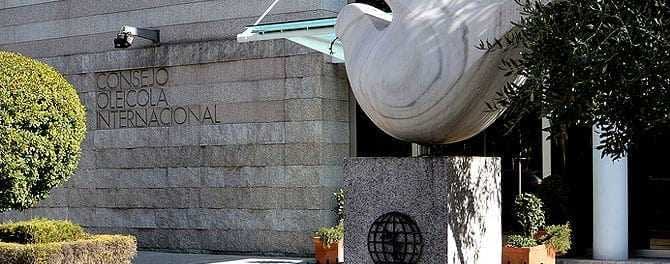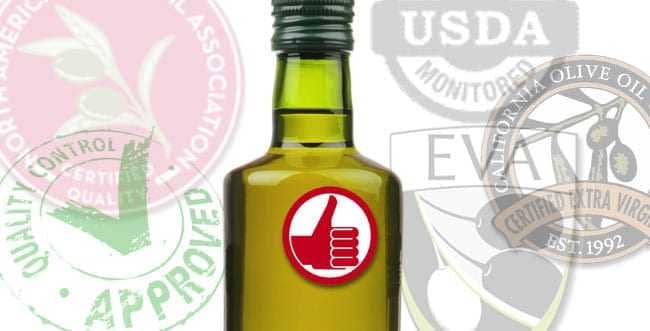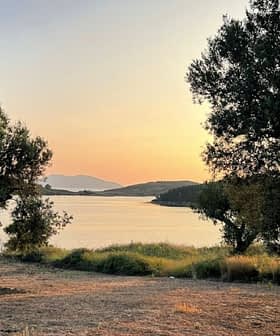A renewed effort to reach a single international standard for olive oil was called for by members of the sector attending a recent International Olive Council meeting, the IOC says in a summary of the event.
Its statement regarding the October 25 meeting in Madrid of its Advisory Committee on Olive Oil and Table Olives, said such a standard “would serve as a common foundation and would then allow private initiatives by companies, national associations or international associations to differentiate their extra virgin olive oils on the basis of tighter requirements entailing additional parameters or stricter limits for specific parameters taken from the single standard.”
Not a call for a new IOC standard covering premium extra virgin olive oil
As part of a discussion on the growing number of conformity and quality seals for olive oil, the committee had invited various associations from non-IOC member countries to attend the meeting.
The IOC said in its statement that the key points emerging from their presentations and the ensuing debate “were that participants welcomed quality seal schemes aimed at differentiating between extra virgin olive oils on the basis of stricter parameters than in the IOC’s Trade Standard Applying to Olive Oils and Olive-Pomace Oils.
“But at the same time they felt that such premium extra virgin olive oil should not be covered by a new IOC standard.”
IOC laments “lack of monitoring” in most non-IOC importer countries
Meanwhile, the core issue as seen by the Advisory Committee is that of “governmental monitoring of compliance with current IOC standards,” the IOC statement said.
“Such monitoring, or the lack of it, in the majority of the non-IOC importing countries due to the absence of ad hoc regulations is precisely what has driven several importer associations (Australia, Japan, USA) to ask the IOC to support their schemes for the voluntary monitoring and certification of the oils sold by their members, with reference to the IOC standard, and to persuade their authorities to adopt the IOC standard.”
Australian example
Regarding producers from non-IOC countries, the IOC said there was a campaign in Australia for the adoption of a national standard — currently only voluntary — differing from the IOC standard on certain parameters.
“They have put in place a self-monitoring scheme certifying oil conformity with this standard,” it said.
The advisory committee noted that the aim was for this to go international through the EVA (Extra Virgin Alliance) scheme, “but even more so to find a practical solution that satisfies both companies in IOC member countries (which are required to abide by the IOC standard at least) and those in non-IOC member countries (case of Australia) that wish to derogate some limits fixed in the IOC standard for certain purity parameters by applying higher limits (for campesterol and linolenic acid content) to reflect the distinctive features of some locally produced virgin olive oils.”
“The Advisory Committee is very familiar with the situation in the non-IOC member countries but participants reiterated the hope that all the olive oil producing countries would make a renewed effort at dialogue in order to arrive at a single international standard,” the IOC said.
Participants came from countries including Australia, Brazil, Japan, Peru, and the United States
The IOC said that the meeting participants included the Australian Olive Association (AOA), representing producers. “The Australian Olive Oil Association (AOOA), which represents importers, apologized for being unable to attend but forwarded a presentation,” it said.
“The Brazilian importer association OLIVA attended alongside two associations from Japan – the importer association JOA and TOYO, which is primarily a producer association, the olive oil tasters’ association Peruolivo from Peru, and the North American Olive Oil Association (NAOOA) from the United States, representing importers.
“The Californian Olive Oil Council (COOC), made up of Californian producers, did not reply to the invitation extended by the IOC.
“Two international associations also attended, the California-based association EVA and the Spain-based QvExtra!”
Portugal’s Luis Folque appointed committee chairman
In a separate statement, the IOC said that the advisory committee was set up in 1991 “as a meeting point for industry professionals from the IOC member countries to voice their opinions, it is a key talking partner for the IOC Executive Secretariat and helps it to identify effective solutions to issues of concern to the sector.”
At its latest meeting, the committee appointed a new chairperson and two vice chairpersons.
Luis Folque, a representative of processors and president of the Portuguese association CASA DO AZEITE, will be chairman for 2014 and 2015, replacing Tunisia’s Ali Ben El Hadj M’Barek, “who has represented producers since the committee was first set up and has held the committee chair on two occasions, firstly in 1997 – 2000 and then in 2010 – 2013.”
“For the two vice chairs, committee representatives elected the former chairman Ali Ben El Hadj M’Barek and the Head of Institutional Relations at the Consorzio Olivicolo Italiano (UNAPROL, Rome, Italy), Michele Bungaro, who also represents producers,” the IOC said.
- IOC statement: Importer and producer associations from non-member countries share their experiences with member associations of IOC Advisory Committee
- IOC statement: Newly designated chairs and vice chairs for IOC Advisory Committee
- Olive Oil Times: Council Taking Closer Look at Olive Oil Quality Seals










